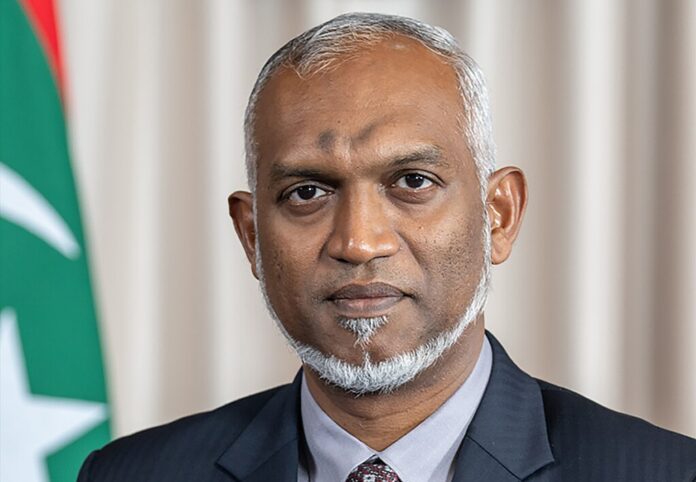With a commanding win, President Muizzu’s party secures a supermajority, steering the Maldives away from India and closer to China
President Mohamed Muizzu’s People’s National Congress (PNC) party celebrated a decisive victory in the Maldives parliamentary elections, clinching 66 of the available 86 seats. This overwhelming majority empowers Muizzu to advance his agenda, including fostering closer ties with China, a significant pivot from the nation’s previous pro-India stance. The election not only alters the political landscape but also sets a new course for the country’s foreign policy and regional alignments.
The election results, as announced by the Elections Commission of the Maldives, indicate a substantial shift in the political power dynamics, with Muizzu’s PNC and its allies jumping from a mere eight seats in the outgoing parliament to a commanding majority. This change underlines a dramatic transformation in voter sentiment and a consolidation of power that could reshape the Maldives’ legislative and foreign policy directions.
Embed from Getty ImagesThe implications of this electoral outcome are profound, especially in terms of foreign relations. President Muizzu has publicly expressed his intention to move away from the Maldives’ “India First” policy and strengthen economic and strategic ties with China. This strategic shift comes at a time of heightened geopolitical tensions in the region, where India and China vie for influence over smaller nations in the Indian Ocean.
The electoral process itself was marked by a high voter turnout of 72.9 percent, reflecting the public’s keen interest in the direction of national policy, especially regarding international alignments. Despite the clear majority, the election also highlighted ongoing issues within Maldivian society, such as gender representation in politics; only three of the 41 female candidates won seats, all from Muizzu’s party.
Environmental concerns were also a significant part of the electoral discourse. President Muizzu has promised to counteract the threat of rising sea levels—a critical issue for the archipelagic state—through land reclamation and the construction of higher islands. However, environmentalists have raised concerns that such projects could exacerbate the nation’s vulnerability to flooding.
The election’s outcome has a clear mandate for Muizzu to steer the country towards a path of significant infrastructural development and international realignment. With the formal ratification of the election results expected soon, and the new assembly poised to commence in early May, the global community watches closely as the Maldives navigates its new political and diplomatic trajectory.
